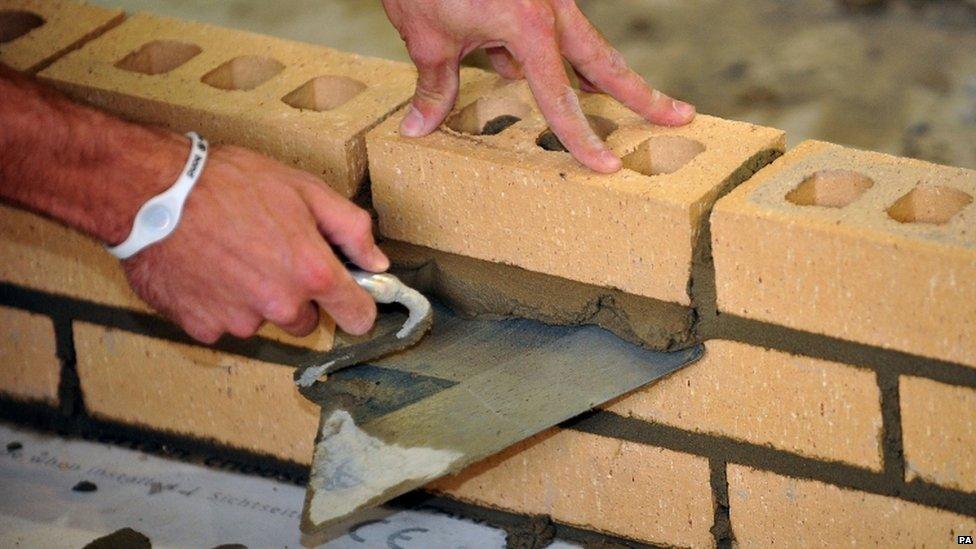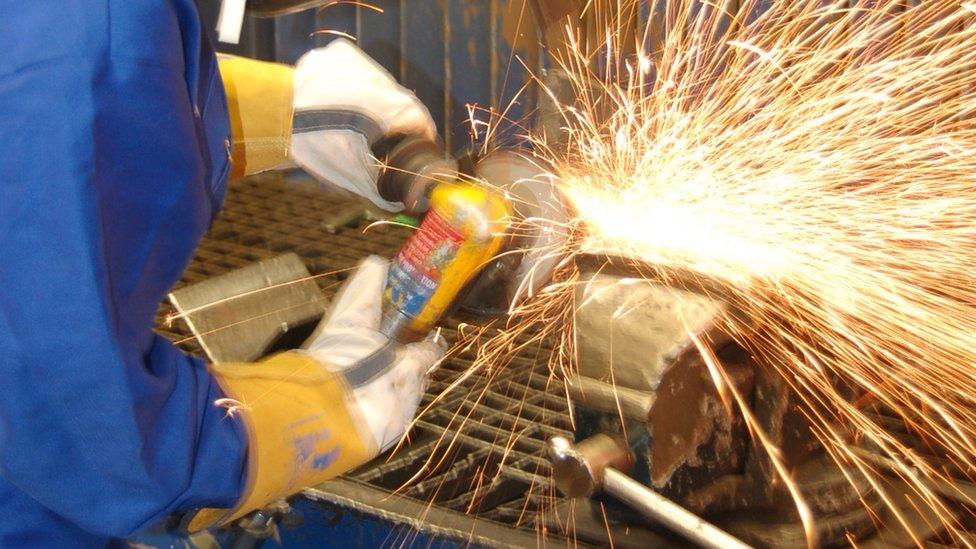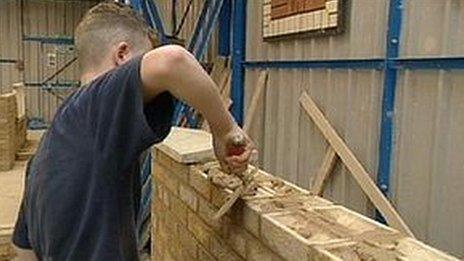Apprenticeships expansion 'devaluing brand'
- Published
- comments

The government wants to deliver three million new apprenticeships over five years
The push to create apprenticeships fast has devalued their brand, with low level skills such as coffee-making being accredited, Ofsted has said.
Ofsted chief Sir Michael Wilshaw says some learners are not even aware they are on apprenticeship schemes.
Apprenticeships, which ministers in England say are key to tackling unemployment, are sometimes covering workers' pre-existing skills, he says.
The government says it is improving the quality of schemes through reforms.
Skills minister Nick Boles said: "Putting an end to poor quality apprenticeship training lies at the heart of our reforms of apprenticeships.
"Ofsted's report backs up the findings of our 2012 review and provides further evidence for our decision to put employers rather than training providers in the driving seat."
Changes include legislation that will provide protection for the term "apprenticeship" to prevent misuse by providers in England, the government says.
Apprenticeships will also be included in performance tables from 2018.

'Struggled to find work'

Joseph Turner, from Manchester, completed a business administration apprenticeship - a 12-month placement at a company in the environmental sector - in April. He now feels it was of no use to him.
"When I first started I could think of nothing better than gaining a qualification through my work that would put me in a good standing for the future.
"However, I very quickly learned that it was simply a way to underpay workers for generally basic work.
"I was earning around £5 per hour but was let go the moment I finished my apprenticeship scheme. The company then went on to hire an even lower paid apprentice in the same position.
"I have now waited six months and the training providers still haven't sent out my certificate due to a massive backlog of certificates due.
"I now fear my apprenticeship was useless, and have struggled to find relevant work through it."

Sir Michael says low-level apprenticeships are particularly common in service sectors, such as retail and care.
But he argues these do not provide sufficient training that stretches and improves apprentices' capabilities.
Sir Michael says he supports the government's commitment to deliver three million apprenticeships over the next five years.
But Ofsted will say in a forthcoming report that many of the courses on offer fail to give learners the skills and knowledge employers are looking for, or add value to the economy.
It concludes the apprenticeship brand has been devalued at a time when there is a drive to improve the value and quality of vocational learning.

Should you be able to do an apprenticeship in coffee making?
In a speech launching the report, Sir Michael is expected to say that, despite the increase in numbers, very few apprenticeships are delivering professional-level skills in the areas most needed.
'Abusing trust'
He will say that being an apprentice should equate with quality training, opportunity and advancement, and cannot simply be a qualification for performing a job that workers can already do.
Sir Michael will say an apprenticeship must be a valued commodity.
Employers and providers involved in poor quality, low-level apprenticeships are wasting public funds and abusing the trust placed in them, he will say.
Ofsted's report will call on all providers of apprenticeship programmes to be held to account to ensure they add value to apprentices' careers.
This would be measured by increased responsibility at work, better promotion prospects and higher earnings, it will say.
Mr Boles said: "We are absolutely committed to creating three million high quality apprenticeships by 2020 including many more at degree level, because apprenticeships can change the lives of young people and open the door to a good job and a rewarding career."
- Published21 September 2015

- Published27 November 2012
